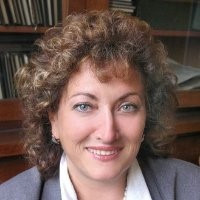Days after the bright Bulgarian holiday dedicated literacy, education and culture – May 24, we take a look at the language of our ancestors. For Bulgarians it is the personification of our national identity, the carrier of important symbolic and communicative functions. This is also shown by the results of a representative study of the public opinion towards contemporary Bulgarian literary language conducted by the Institute for Bulgarian Language and the Department of Bulgarian Language at the Faculty of Slavic Studies of the Sofia University.
 “For every Bulgarian, personal and community motivation for the observance of written literary norms is important,” Professor Krasimira Aleksova, a member of the team that conducted the study, says. “It was important for us to have feedback from all those who are interested in the modern Bulgarian literary language and the trends in it that affect some of the grammatical rules.”
“For every Bulgarian, personal and community motivation for the observance of written literary norms is important,” Professor Krasimira Aleksova, a member of the team that conducted the study, says. “It was important for us to have feedback from all those who are interested in the modern Bulgarian literary language and the trends in it that affect some of the grammatical rules.”
Researchers focused on spheres and situations where the most common mistakes occur. They checked whether Bulgarians approved substitution of Cyrillic with Latin or other symbols in informal communication and whether school remained one of the most important factors for compliance with the rules of writing. “Every language is evolving, so stability of rules is relative,” says Prof. Aleksova. “Therefore, it is important to see whether there was a transition from one state of a writing rule to another.”
“Respondents identify Bulgarian language as the most important factor of national identity. It is viewed as more important than such symbols as the flag, the coat of arms, anthem, cultural and religious affiliation. It fulfills a function that unites us, integrates society, and at the same time differentiates us from other peoples. Two-thirds of the respondents are advocates of the idea of purity and richness of the Bulgarian language that must be preserved.”
The study also shows that Bulgarians assign to school the major task of educating young people. Therefore, this institution is considered one of the most important in enforcing literary norms.
“According to us, this is part of the long-standing views of Bulgarians on the particularly important place of school and role of the teacher. It is also interesting that two-thirds of respondents believe oral speech should follow the rules of the written form. This is because the written form is evidence of the existence of speech. Literary rules are taught intensively at school, although linguists have always known that innovations emerge in oral communication and we must undoubtedly also take them into account. Our colleagues are following very carefully the contemporary state of our language in order to make changes in written forms if necessary.”
In comparison to English or French where words are written according to etymological traditions, rules in Bulgarian language focus on morphology, which makes writing in Bulgarian less difficult to those studying it, professor Alexova also told us.
English: Alexander Markov
The film "Gundi: Legend of Love" caused a sensation across the Ocean. Screenings of the film story about the life of legendary football player Georgi Asparuhov – Gundi were held in Los Angeles and Las Vegas as the halls were full...
On this day 35 years ago, the authoritarian regime of communist dictator Todor Zhivkov collapsed. To mark the anniversary, the BGNES news agency carried out a survey of monuments to totalitarianism. The agency checked whether the monuments of the..
Residents and guests of the village of Kolena, Stara Zagora Municipality, gather for the Young Wine Festival. The event was celebrated for the first time in 2017, and a few years later the local teacher and winemaker Martin Slavov gave the..
Over 3.5 million Ukrainians have arrived in or passed through Bulgaria since the beginning of the war. Nearly 200,000 people have found temporary..
At the Bulgarian Embassy in London, Prof. Bettany Hughes presented excerpts from the new BBC series - Wonders of Bulgaria. Prof. Bettany..
An innovation for the treatment of diabetic foot ulcer using the patient's own tissue and artificial intelligence has been implemented at the University..

+359 2 9336 661
